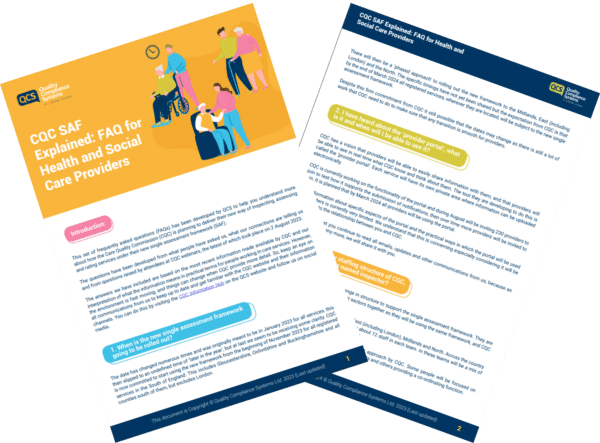Are you and your team ready for the roll out of the provider portal and new regulatory approach, which begins in three months’ time?
Make sure you are ready for the changes and familiar with the single assessment framework.
The CQC is changing the way it inspects all health and social care providers in England. The new single assessment framework focuses on what matters to people who use health and social care services and their families.
And following the CQC’s recent announcement that a phased approach will be taking place from November 2023 of the roll-out of both the new provider portal and use of the new single assessment framework, it is important to start understanding and preparing for the changes.
This phased approach will last until March 2024 when all providers will have use of the portal and be assessed under the new single assessment framework.
As a first step, we have produced a free CQC SAF Explained: FAQ for Health and Social Care Providers document to support you with some of the key questions you might have as a result of the CQC webinar. The document clarifies the timeline for the provider portal and new regulatory approach. It will also prepare your team for the changes, enhance their understanding, and allow them to be aware of the impact these changes might have on your service.
The answers are based on the information and knowledge we currently have.
Where should we send your FAQ for Care Providers?
The Health and Social Care Act 2008 (Regulated Activities) Regulations 2014
The intention of the regulations is to prevent people from receiving unsafe care and treatment and prevent avoidable harm or risk of harm. Care providers must assess the risks to people’s health and safety during any care or treatment and make sure that staff have the qualifications, competence, skills and experience to keep people safe.
Care providers should ensure that they only employ ‘fit and proper’ staff who are able to provide care and treatment appropriate to their role. To meet this regulation, providers must operate robust recruitment procedures and must have a procedure for ongoing monitoring of staff. Staff must receive the support, training, professional development, supervision, and appraisals that are necessary for them to carry out their roles and responsibilities.


